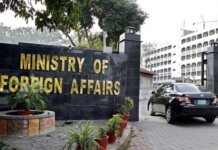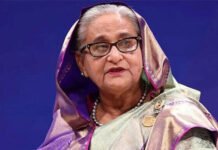It is now widely recognized that Azerbaijan-Turkiye relations have always been strong and often described with the phrase “one nation with two states.”
This article is concerned with the assessment of the 2022 Azerbaijan-Turkey ties on shared cultural, historical, and economic relations, political cooperation, and mutual support.
Historical ties
Turkiye has long-standing historical ties with its counterpart Azerbaijan that began on 4 June 1918, giving the way for the opening of the Turkish Embassy in Baku and Azerbaijan’s Embassy in Ankara.
In 2014 the President of Azerbaijan, Ilham Aliyev signed a decree that brought stronger relations between these two countries where he met with the top leadership of Turkiye to expand cooperation between Turkiye and Azerbaijan and lay the foundation for future relations.
This visit was the sign which established the relations between these countries today. Turkish-Azerbaijan relations are based on common historical and cultural ties, which have been enriched by the legacy of great thinkers like Heydar Aliyev and other individuals who brought these two countries together.
It is worth noticing that, during the President of Turkiye, Recep Tayyip Erdogan’s visit to Azerbaijan in mid-December 2022 the” Joint Declaration Regarding the Foundation of Cooperation Council between the two countries” was established.
Diplomatic ties
The year 2022 marked a significant year of diplomatic relations between Azerbaijan and Turkiye. They have continued to forge close ties since the fall of the Soviet Union.
Turkiye remains a country whose relations with Azerbaijan are described as close partners and friends. There have been close relations between their Embassies in the capitals.
Bilateral relations
On the occasion of the 104th Republic Day of Azerbaijan, the President of Turkiye visited Azerbaijan where he made known the bilateral relations between the two countries.
He said that “Turkiye and Azerbaijan have taken their bilateral ties to a level that is exemplary not only for the region but for the whole world.”
Also, on the 1st of December 2022, political consultations between the Republic of Azerbaijan and the Republic of Turkiye were held on the level of heads of departments of the Foreign Ministries.
During this, the current state and prospects for the development of bilateral relations in the economic, scientific, cultural, energy, agriculture, and tourism spheres as well as cooperation between the two countries within the framework of international organizations were discussed.
Trade and economic ties
Trade and economic ties between these two countries in the year 2022 recorded an upsurge in development looking at the major developments which undertook place.
The trade relations between Azerbaijan-Turkiye have been long established looking at the days when they cooperated on the signing of the “Shusha Declaration Allied Relations”
This helped them to be able to develop a more resilient effort in their trade relations. In 2022, the Trilateral Summit between Turkiye, Azerbaijan, and Turkmenistan was one of the steps to strengthening the economic relations of the two countries.
Projections show that the trade relations between these two countries increase significantly in the 2022 year.
Mutual support
Azerbaijan-Turkiye continue to enjoy mutual support from each other. They have been a large military and cultural support from both countries to one another. Special cooperation was set to ensure that the mutual support between these two countries is strengthened.
The Azerbaijan Ministry of Defense in an open interview said just more than 20 joint military exercises have been held between these two countries. Supporting Azerbaijan in times of need, Turkiye has been the backup of Azerbaijan during trying times.
Cultural exchange
There have been several cultural exchanges between these two countries, ranging from educational support, scientific innovation support, and diplomatic exchanges. They share a common heritage between these two countries in terms of the tourism sector.
There has been a massive development in the exchange of personnel between these two countries. Diplomats and other international relations personnel have extensively promoted the cultural aspects of these two countries.
Collaborations between both countries on student scholarship programs increased in the 2022 year. Various opportunities in these areas were made available to all the countries.
Challenges
Despite the above achievements in various areas Azerbaijan and Turkiye countries still lack certain key factors in their relations.
The gap in development between these two countries is a challenge for them looking at their aim to promote equal trading activities among each other. The COVID-19 Pandemic crippled several economies including that of these two countries.
Also, the issue of conflicts in the Azerbaijan region is another challenge they are currently battling with. For some time now there has been a constant talk between Azerbaijan and Armenia to bring peace between these two countries.
Other international community organizations and countries like the United State were concerned with the involvement of Turkiye in the war.
Also, intending to promote gas and energy development in the region, there is a huge economic challenge these countries have to battle with.
Lastly, the issue of terrorism is another challenge for them. The consistent threat of terrorist activities in the region is a worrying issue for both countries.
Suggestion
To ensure that the relations between Azerbaijan and Turkiye continue to grow stronger, they will need to promote an extensive bilateral plan. This includes the yearly activities to be undertaken by both countries.
They must consider promoting cooperation in the private sector investments among each other. Giving private investors the chance and opportunities to be able to move in and out of the countries easily, also working hard to promote the security sectors of the economy. This will help to fight the issues of terrorism in the region.
*The writer is a Fellow at The Diplomatic Insight, published by the Institute of Peace and Diplomatic Studies
*The views presented by the author do not reflect the position of The Diplomatic Insight. Nor does The Diplomatic Insight bear any responsibility for the accuracy of the information cited.







